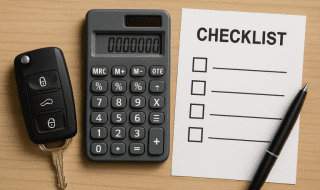
Navigating finances in a domestic partnership can be a tricky thing. Whether you’re sharing a home with a partner or managing a joint lifestyle, having clear boundaries and agreements around money is essential. While most married couples benefit from legal protections regarding property and finances, domestic partnerships—especially for same-sex couples—may not always have the same advantages, particularly in states where domestic partnerships aren’t formally recognized.
For partners living in these circumstances, it’s important to understand how personal debt is handled within the relationship. With the right planning, you can protect both yourself and your partner from financial risk. Creating a Domestic Partnership Agreement (DPA) is a proactive way to ensure that both parties are on the same page when it comes to money, including how debt is managed. Here’s a closer look at what to think about when it comes to debt and domestic partnerships.
1. What Is a Domestic Partnership Agreement?
A Domestic Partnership Agreement (DPA) is a legal document that lays out the rights and responsibilities of both parties in a domestic partnership. Think of it like a contract that outlines how financial matters—such as debts, assets, and income—will be managed. Even if you live in a state where you can’t officially register as domestic partners, having a DPA in place can provide you both with a clear understanding of how your financial situation will work, should things change.
In the context of debt, a DPA can address how each partner will handle debts that were incurred before and during the partnership. For example, if one person brings significant debt into the relationship, the agreement can clarify whether both parties are responsible for paying it off or if each partner is responsible for their own debts. Without this type of agreement, debt can become a complicated issue if one partner is not on the same page.
In some situations, if you’re already dealing with high amounts of debt, it may be helpful to seek out a debt resolution program to help reduce monthly payments or negotiate down existing debt. A debt resolution company can guide you through this process, and having a DPA in place can make it easier to discuss the shared responsibility for finances.
2. How Debt Is Handled in Domestic Partnerships

When it comes to debt, how you and your partner divide it can vary greatly depending on your financial habits and past histories. If one partner enters the relationship with a significant amount of personal debt, it’s essential to clarify how that debt will be handled. There are a few key things to keep in mind:
- Debt incurred before the partnership: Any debts you or your partner bring into the relationship are generally considered personal debts. However, without an agreement in place, these debts may still affect both of you if they impact your ability to make shared payments on things like a home or utilities. A DPA can specifically state that one partner is responsible for their personal debt and won’t hold the other liable.
- Debt incurred during the partnership: If you and your partner share expenses or take on debt together (for example, a joint credit card or a car loan), then both of you may be responsible for the repayment. A DPA can define what happens if one partner cannot contribute their fair share, protecting both parties from unexpected financial strain.
If you’re struggling with large amounts of debt as a couple or individually, a debt resolution program can help you manage or reduce your liabilities. These programs work to consolidate or negotiate your debts so that you can avoid collection calls and lower your overall payment obligations.
3. Protecting Yourself: What Should Be Included in a DPA?
While it might not be the most romantic topic, making sure that your finances are clear can save a lot of trouble later. A Domestic Partnership Agreement should be thorough and well thought out. The key to this document is addressing all the potential financial scenarios that may arise. Here are a few important things to include:
- Debt allocation: Who is responsible for the debt each partner brings into the relationship? If one partner has credit card debt, student loans, or personal loans, this should be specified. You can decide if one partner is solely responsible for their debt or if it’s shared responsibility.
- Shared expenses and savings: How will you both handle shared expenses, such as rent, utilities, and household supplies? Will you contribute equally, or will payments be based on income? A DPA can help avoid misunderstandings by setting clear guidelines for how you both manage finances.
- What happens if there’s a financial crisis? In a worst-case scenario, if one partner’s financial situation takes a sharp downturn, the DPA should outline how you will handle that. Will you help cover their costs, or will the debt solely remain their responsibility? Including this in the agreement can ensure both partners feel secure, no matter what happens.
- In the event of separation or dissolution: It’s important to discuss what will happen to joint debts and assets in the case that the relationship ends. Will one partner take on the responsibility for paying off joint debt? A DPA should clearly define how assets and liabilities will be divided.
Having these points outlined in a legal agreement can provide security for both parties, even if the financial situation changes.
4. How to Talk About Debt with Your Partner

Talking about debt can be uncomfortable, but it’s necessary for a successful partnership. You may find it difficult to have a candid discussion about personal finances, but doing so will give you clarity and help set expectations. Here are some tips to approach this conversation:
- Be honest and open: If you’re bringing debt into the relationship, it’s essential to be upfront with your partner. Don’t wait for them to discover debt on their own. Similarly, if you’re concerned about your partner’s debt, be respectful but direct in your inquiry. Approach the topic with empathy, recognizing that financial struggles are common and don’t define a person’s worth.
- Focus on solutions, not blame: The goal is to work together to find solutions. Instead of focusing on who is at fault for the debt, think about how you can both manage it moving forward. Consider seeking help from a debt resolution program if necessary, which can provide professional advice on how to tackle debts together.
- Set goals together: Once you’ve shared your debt situations with each other, set financial goals as a couple. This might include paying off debt, building an emergency fund, or saving for major life events like buying a home or retirement. Setting shared financial goals strengthens the partnership and makes both partners accountable.
5. When to Seek Professional Help
If your financial situation is more complex, you may want to seek professional help. A financial advisor or a debt resolution service can help guide you through the process of managing or reducing debt. These professionals can provide insight into creating a more structured plan for your finances and ensure that both partners are on the same page.
A debt resolution program can help you consolidate your debt into manageable payments, reduce interest rates, or even negotiate settlements with creditors. This is particularly useful if you or your partner are dealing with overwhelming debt and are unsure of how to begin addressing it.
Final Thoughts: Building a Strong Financial Foundation Together
Money might not be the most exciting topic for couples, but it’s a vital one. Whether you’re in a domestic partnership or married, having a clear plan for how to manage debt and finances can help prevent future issues and build a strong foundation for the future. A Domestic Partnership Agreement can help clarify responsibilities and protect both parties, ensuring that financial challenges don’t lead to unnecessary strain on the relationship.




